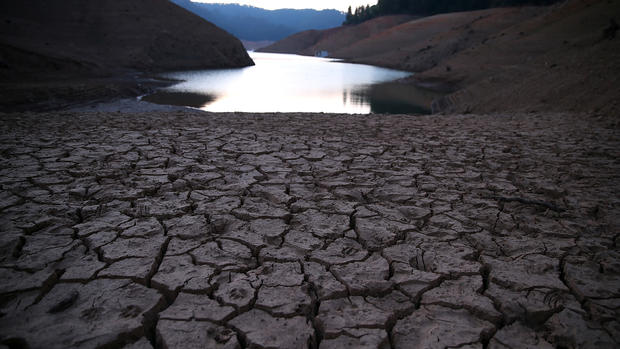Should bottled water companies sell national forest water?
A water battle is on tap in drought-hit California, thanks to the lucrative bottled water industry tapping a national forest's spring water for corporate profits.
The issue is coming to a head at a time when many Californians are feeling the effects of a long-term drought. Yet despite the water shortages in the state, Nestle Waters North America has been piping out water from the San Bernardino National Forest without a valid permit, while critics also charge that the impact on flora and fauna is unknown, according to an investigation published in the Desert Sun newspaper.
Remarkably, Nestle has been piping out water despite the fact that its permit to transport water across the national forest expired in 1988 -- 27 years ago. The water is then packaged and sold as Arrowhead 100 percent Mountain Spring Water, a popular brand in Western states. Yet it's not only San Bernardino National Forest that's impacted, given that there are no state agencies tracking how much water is being used by California's bottled water industry, or how it's impacting the environment, the report noted.
"They're taking way too much water. That water's hugely important," Steve Loe, a biologist who retired from the Forest Service in 2007, told the Desert Sun. "Without water, you don't have wildlife, you don't have vegetation."
Nestle, for its part, told CBS MoneyWatch that it is monitoring the water levels of the spring and the wildlife in the park.
"We do biological assessments to know what the health is of the forest," said spokeswoman Jane Lazgin. A water gauge that's been installed since 1919 has shown that there has been "consistent water" through many types of climate conditions, she added.
As for the expired permit, Lazgin said that Nestle has continued to pay the permitting fee and was told by the U.S. Forest Service that it was in "good operational standing." The permit hadn't been renewed because of what they were told was a backlog with the agency, she said.
The U.S. Forest Service didn't immediately return a request for comment.
Nestle defended the practice by noting that its water use was just a fraction of overall water consumption, and that its product offers a healthy alternative to sugary drinks.
"The fact is, the use of water for bottling in California is the most efficient use of water among packaged beverages and is literally a 'drop in the bucket' in comparison to how much water is used for other purposes," Tim Brown, the chief executive of Nestle Waters North America, wrote in a letter in the Desert Sun. "Our water use in the San Bernardino National Forest is the daily equivalent of one-fifth the water used to water a single golf course in Palm Springs."
Still, those golf courses are also hot topics given the state's dire drought, which has prompted Gov. Jerry Brown and other lawmakers to propose a $1 billion plan to provide emergency assistance and protect wildlife. Against that backdrop. any questions about proper water usage is likely to get a Californian's dander up.
While the bottled water companies may be using a small fraction of the water tapped by agriculture, it still raises issues of how it impacts local environments and whether Nestle is getting an unfair break. While it continues to pipe water out of San Bernardino National Forest, Californians are under a host of water restrictions, such as lawn-watering limits, and hotels can't serve water unless guests request it.
As the retired forest service biologist Loe told the Desert Sun, "I would like to see the Forest Service and Nestle agree not to take water until they know if it's OK to take water. This hasn't been studied in a long time."
